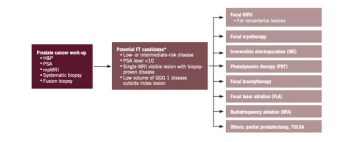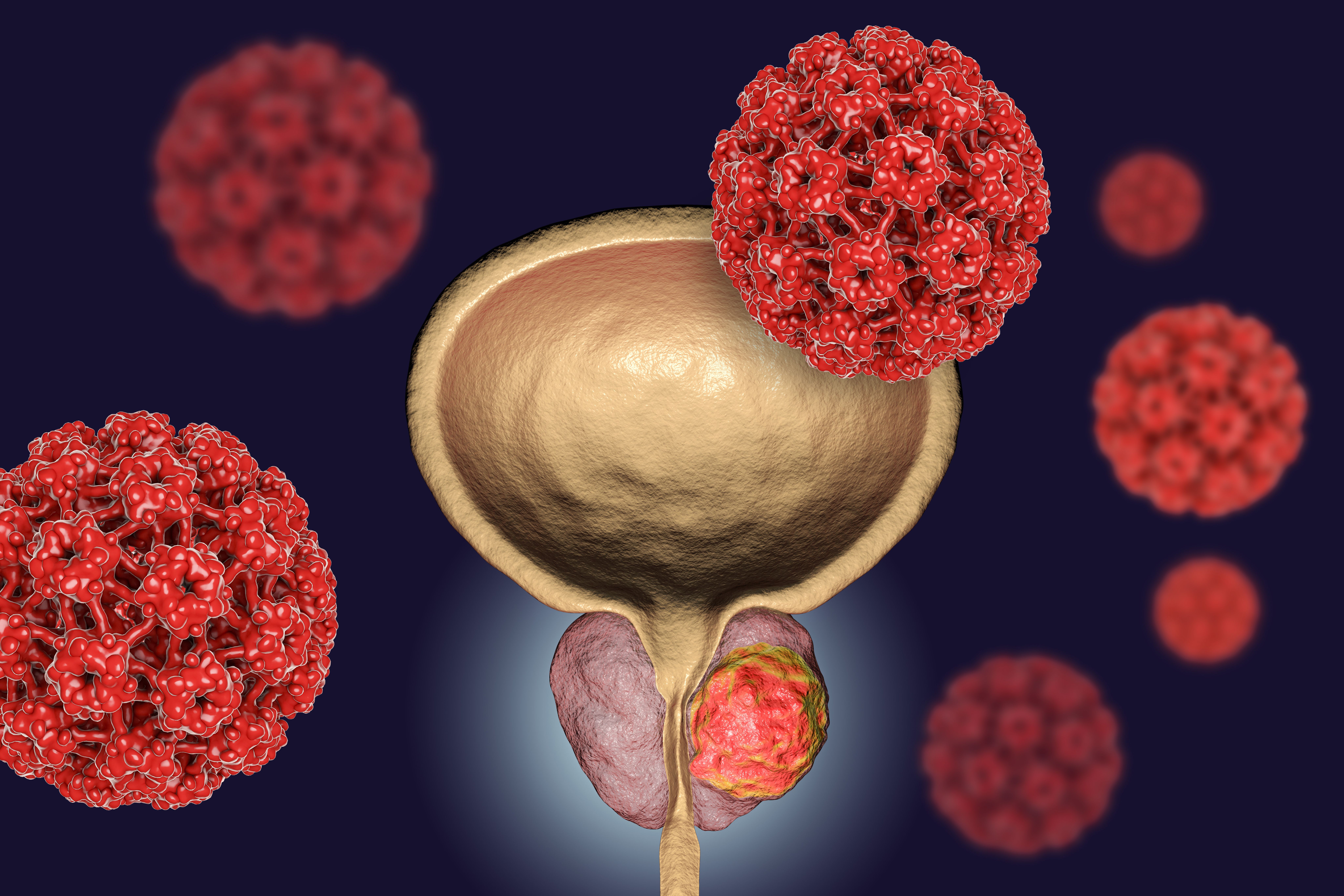
Prostate Cancer
Latest News

Latest Videos
CME Content
More News

Disparities regarding comprehensive genomic profiling came to light during a presentation at the 2021 ASCO Annual Meeting.

For men with asymptomatic or mildly symptomatic mCRPC, using bone-protecting agents during treatment with radium-223 plus enzalutamide controlled the risk for fractures.

CancerNetwork® spoke with 2 experts to learn more about focal therapy and its role in treating localized prostate cancer moving forward.

Phase 1/2 data presented at the 2021 ASCO Annual Meeting for the novel PSMA-targeting agent HPN424 show tumor responses in patients with pretreated metastatic castration-resistant prostate cancer.

A 40% reduction in the risk of death was observed when 177Lu-PSMA-617A was added to standard of care therapy in patients with PSMA-positive metastatic castration-resistant prostate cancer.

Patients who underwent advanced molecular imaging had higher rates of disease-free survival, according to new research.

The approval of 18F-DCFPyL comes on the heels of positive results from the company-sponsored research in the CONDOR and OSPREY trials investigating the imaging agent for prostate cancer.

The ready-to-use subcutaneous formulation of leuprolide mesylate, Camcevi, was approved for use in patients with prostate cancer by the FDA.

Promising results from a phase 1b trial of cabozantinib in combination with atezolizumab for patients with high-risk, locally advanced or metastatic castration-resistant prostate cancer are expected to lead to regulatory submission.

Prostate cancer in African American men was improved with higher rates of screening for prostate-specific antigen.

The results from a trial evaluating the Genomic Prostate Score did not find an increase in active surveillance acceptance amongst a population of predominantly Black men with favorable-risk prostate cancer.

Thomas J. Polascik, MD, reflects on a manuscript written by his colleagues regarding the use of focal therapy to treat localized prostate cancer.

Focal therapy for prostate cancer could balance undertreatment and overtreatment of localized prostate cancer for highly selected patients. Long-term oncologic outcomes are not yet available for any modality. Patients should be informed regarding currently available outcomes, the necessity of adherence to a stringent follow-up protocol, and the possible need for additional targeted therapy or future radical treatment in case of recurrence.

A technology that uses AI to deliver focal laser therapy to prostate tumors was granted breakthrough device designation by the FDA, which will allow for the swift development and commercialization of the product.

E. David Crawford, MD, spoke about the use of transitional disease and other redefined disease states in prostate cancer, while Rana McKay, MD emphasized the need for clinical trials to validate current treatments and practices.

This article reviews new imaging technologies that may improve early detection of biochemical recurrence after definitive treatment for prostate cancer. This article also features insights from oncology experts Raoul Concepcion, MD; Judd Moul, MD; Brian Helfand, MD; Munir Ghesani, MD.

The NanoTherm therapy system for focal ablation of intermediate-risk prostate cancer continued to show a tolerable safety profile in a recent analysis.

CancerNetwork® shares its latest investigation into novel practices for rendering surgical management of prostate cancer from experts at Vanderbilt Institute for Surgery and Engineering.

The phase 2 trial investigated the toxic effects, PSA responses, and resulting quality of life measures from SBRT and SDRT, finding that the latter has the potential to be a feasible alternative treatment option for prostate cancer.

CancerNetwork’s latest podcast episode dissects and article from the journal ONCOLOGY® focusing on 4 PARP inhibitors investigated for the treatment of advanced prostate cancer.

Scott T. Tagawa, MD, considers data for the novel PSMA-targeted radiopharmaceutical 177Lu-PSMA-617.

Around the Practice: Metastatic Castrate Resistant Prostate Cancer

Data presented at the Oncology Nursing Society’s 46th Annual Congress reiterated positive results from the PROSPER trial with enzalutamide in the treatment of nonmetastatic castration-resistant prostate cancer and the key implications these have for nurses treating men with the disease moving forward.

Rana R. McKay, MD, reflects on a proposal from her colleagues regarding a new model for guiding the treatment of prostate cancer that focuses on a “transitional” disease state.

ONCOLOGY® editorial board member E. David Crawford, MD, and colleagues, propose a new model for guiding the treatment of prostate cancer that focuses on a “transitional state,” which occurs during the interval of progression to metastatic castration-resistant prostate cancer.










































